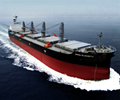Russia-Ukraine conflict to impact global supply chains: Moody’s

The greatest risk facing global supply chains has shifted from the pandemic to the Russia-Ukraine military conflict and the geopolitical and economic uncertainties it has created.
Moody’s Analytics says that the weight of the economic impact the Russia-Ukraine military conflict will have on global supply chains will hinge on how long the conflict lasts.
Global supply chains have been in a fragile state since the start of the pandemic, and the military conflict will only exacerbate the situation for companies in many industries, particularly those heavily reliant on energy resources.
Inventory and reserves can help mitigate short-term supply-chain disruptions, but shortages will be inevitable should the conflict persist, the report adds.
In terms of evaluating country risk, the most salient adverse impact will be felt in countries in Europe, that are recipients of Russian oil and natural gas. Uncertainty over the conflict, however, will lead to higher oil and natural gas prices worldwide, even if additional supply outside of Russia comes on line. This will benefit oil-exporting countries and be detrimental to oil importers.
Automakers, electronic device manufacturers, phone makers, and many other sectors that are reliant on the semiconductor chip manufacturing, might face significant risks due to the conflict.
The transportation industry will also bear the brunt as it has the highest energy intensity of all major industries. The shipping costs skyrocketed over 300% in 2021 due to the pandemic, as border and ports were closed around the world. Due to the scarcity of new containers, the shipping costs will continue to be elevated. Transportation and logistics are key to a wide range of industries from processed food to advanced industrial manufacturing and affect especially those that rely on inputs from many different parts of the world. Finally, if energy extraction is upstream, and freight and transportation midstream, the impact of the military conflict will also be felt in industries that are downstream, where oil and gas are refined and used to make rubber, preservatives, plastics, containers, and many other products that play an important role in the agricultural and medical fields.
While the world will be relieved to have seemingly overcome the Omicron variant, a new challenge has emerged where the endgame is not clear. The ever-changing nature of the sanctions being imposed and the fluid nature of what is happening on the ground only add to the uncertainty clouding the horizon.
Source: Live Mint

 Hellenic Shipping News Worldwide Hellenic Shipping News Worldwide, Online Daily Newspaper on Hellenic and International Shipping
Hellenic Shipping News Worldwide Hellenic Shipping News Worldwide, Online Daily Newspaper on Hellenic and International Shipping





















 PG-Software
PG-Software